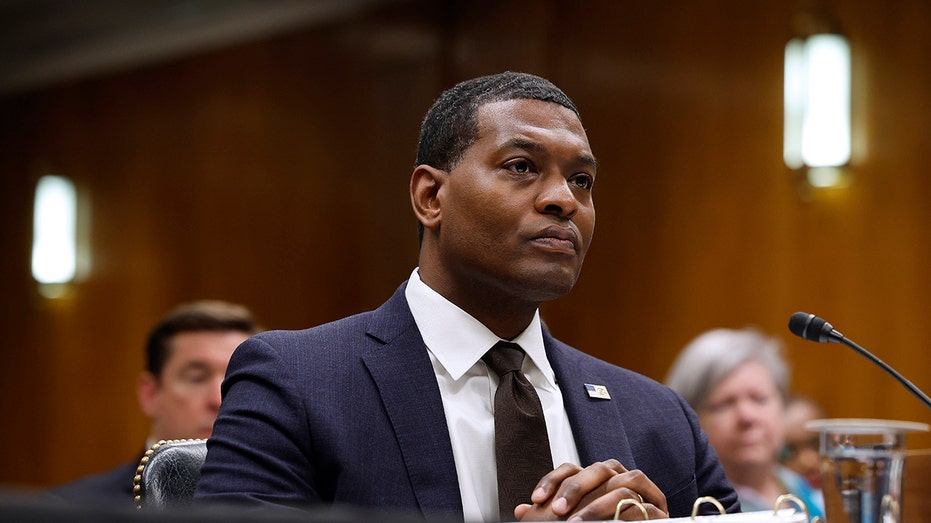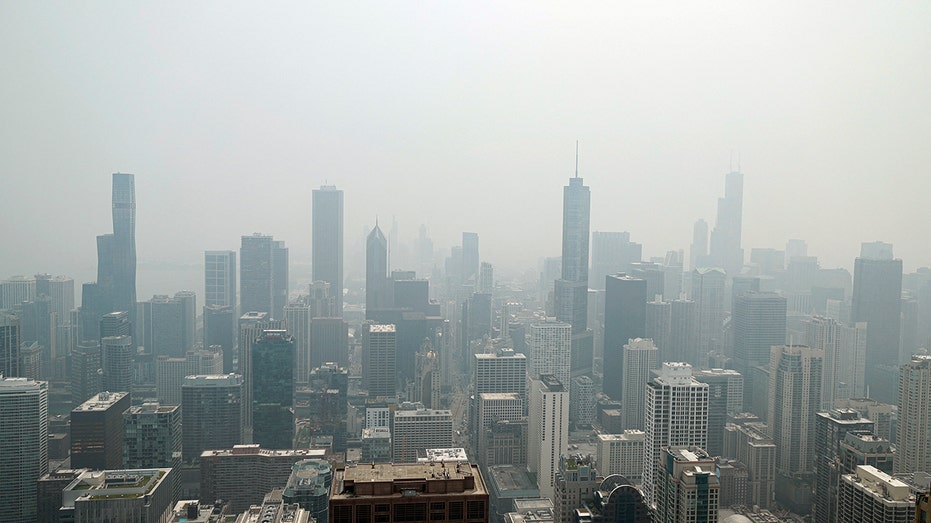EPA delays new ozone pollution standards for businesses until after 2024 election: 'Political games'
The current air quality regulations were first imposed in 2015 and renewed by former President Trump in 2020
The Environmental Protection Agency will delay its previously announced plans to tighten air quality standards for ground-level ozone, or smog, until after the 2024 presidential election.
The decision by EPA administrator Michael Regan to delay one of the agency's most consequential air quality regulations comes despite a recommendation from the Clean Air Scientific Advisory Committee (CASAC), an advisory panel for the EPA, to take immediate action to lower air pollution limits.
Several lawmakers expressed their disappointment in a letter to the agency that described the delay as "political games that risk lives."
"Unfortunately we’ve seen the process for updating the ozone standards repeatedly swept up in political games that risk lives,'' Rhode Island Sen. Sheldon Whitehouse said in an Aug. 7 letter to the EPA signed by 51 other Democrats, according to The Associated Press. "Inaction threatens public health and puts those with underlying conditions such as asthma or lung disease at an elevated risk."
STATES TO SUE EPA OVER 'DAMAGING' ENVIRONMENTAL IMPACT OF RESIDENTIAL WOOD-BURNING STOVES

Several lawmakers expressed their disappointment in a letter to the agency that described the delay as "political games that risk lives." (Gary Hershorn/Getty Images / Getty Images)
Regan’s letter to the EPA advisory panel last month said he "carefully reviewed and considered the comments CASAC provided" and took note that the CASAC review was "missing important analyses and information."
He said would delay the implementation of the new standards as new information would "warrant additional evaluation and review."
"I have decided that the best path forward is to initiate a new statutory review of the ozone (standard) and the underlying air quality criteria,'' Regan wrote in a letter. The delay gives both the EPA and CASAC time to review "newly available information that has not yet been integrated into the air quality criteria."'
MANUFACTURERS TO EPA: WE’RE LEADING AIR QUALITY GAINS, WE DON’T NEED MORE RULES
In a press release, Regan added, "From the start, I committed that EPA will uphold the integrity of independent, robust processes to ensure that air quality standards reflect the latest science in order to best protect people from pollution. As we initiate a new review, EPA will continue to work closely with our partners at the state, tribal and local levels to fully implement the existing standards, consistent with our Clean Air Act obligations."

U.S. Environmental Protection Agency administrator Michael Regan’s letter to the EPA advisory panel last month said he "carefully reviewed and considered the comments CASAC provided." (Chip Somodevilla/Getty Images / Getty Images)
The current review was the culmination of efforts spanning years and a new review would take at least two years, to "ensure that air quality standards reflect the latest science in order to best protect people from pollution,'' Regan said.
Pushing the implementation of the standards, which are expected to cause a major stir with businesses, avoids a potential feud with industry groups during an election year, especially as Republicans continue to complain about the EPA intruding on businesses and home appliances.
Earthjustice, an environmental advocacy group, called the delay an "indefensible, disappointing decision."
"As a result of today’s decision, if the EPA doesn’t pick up the pace, the agency would likely complete its review in the late 2020s, denying communities any chance of stronger ozone standards until implementation began sometime in the early 2030s," a press statement read.

Earthjustice, an environmental advocacy group, called the delay an "indefensible, disappointing decision." (KAMIL KRZACZYNSKI/AFP via Getty Images / Getty Images)
It added, "The EPA’s decision comes despite mounting evidence of the adverse health impacts and environmental damage caused by ozone pollution. Environmental advocacy groups condemn the decision as scientifically, legally and morally insupportable."
GET FOX BUSINESS ON THE GO BY CLICKING HERE
Raul Garcia, Earthjustice vice president of policy and legislation, similarly remarked the delay was "shameful" and denied science.
The current air quality regulations were first imposed in 2015 and renewed by former President Trump in 2020.
Two advisory panels, including the EPA's Clean Air Scientific Advisory Committee and the White House Environmental Justice Advisory Council, have both urged the agency to lower the current ozone standards.




















